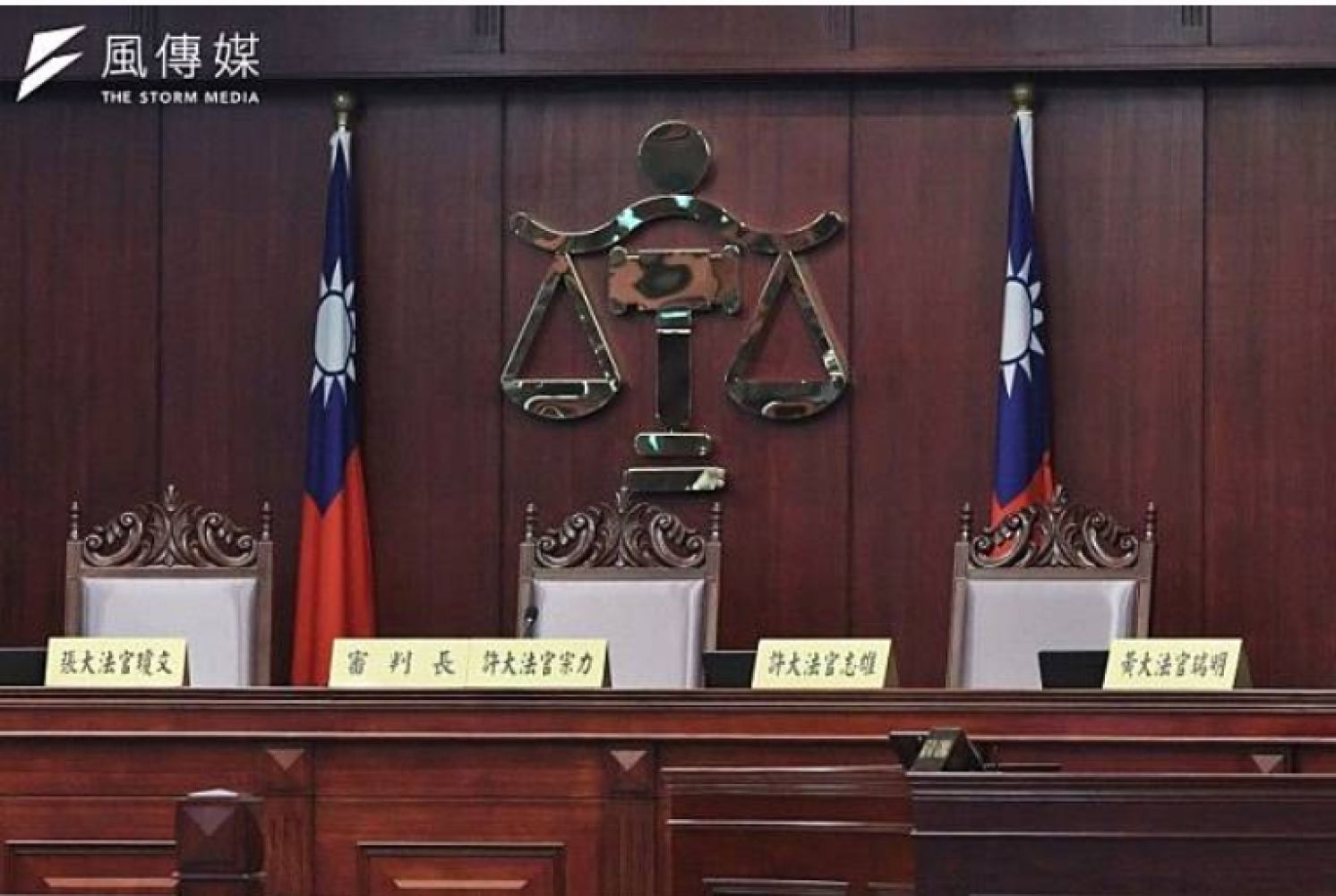
Constitutional Court Ruling on Death Penalty Deceitful Like a Scam
United Daily News Editorial, September 22, 2024
On the first day of new session in the Legislative Yuan, the Supreme Court declared the death penalty "conditionally constitutional," effectively abolishing it. This ruling reflects the grand justices' populist tendencies, aiming to pursue abolition while gaining political favor. They packaged eight unconstitutional elements as constitutional, akin to the emperor's new clothes. This not only misleads the public but also disrupts the constitutional order.
Several outgoing grand justices seek to wear the crown of human rights without facing the backlash of declaring the death penalty unconstitutional. Under the guise of procedural justice, they set up eight hurdles, granting clemency to 37 death row inmates and creating an environment where capital punishment becomes nearly impossible. This effectively shifts the burden of abolition onto lower court judges.
Both abolitionist and pro-death penalty groups expressed disappointment with the ruling, highlighting its failure to satisfy anyone. Abolitionists question why the justices made a decision that left everyone feeling regretful. In their attempt to appease all sides, the justices ended up pleasing neither.
It is even more concerning that this constitutional ruling contains multiple instances where the grand justices exceed their judicial authority, infringing on the core of independent adjudication and encroaching on legislative powers. The constitutional controversies they create are troubling.
Sentencing for various crimes is fundamentally a legislative policy decision. This current group of grand justices has repeatedly overstepped their legislative role, and now they have escalated this by directly mandating that death sentences require unanimous decisions from judges at all court levels. This not only replaces legislative authority but also severely disrupts the independence of the judiciary.
Moreover, the grand justices have not only usurped legislative authority in the judicial process but have also taken on the role of a "fourth court," bypassing the Supreme Court entirely. They have unilaterally declared three death row inmates mentally unfit for execution without any investigative procedures. This goes beyond constitutional adjudication and resembles the exercise of presidential pardon powers, demonstrating an alarming overreach.
The grand justices have wrapped their abolitionist agenda in a "constitutional" guise, attempting to mislead the public about the true nature of their ruling. Following the decision, the Office of the President stated that President Lai Ching-te respects the court's ruling on the constitutionality of the death penalty and hopes the public will engage in understanding, tolerance, and respectful dialogue. Green camp lawmakers only focus on the court's declaration of the death penalty as constitutional, calling for legislative amendments. Can they truly deceive the public and obscure the reality of the justices’ effective abolition of the death penalty?
The only grand justice firmly advocating that the death penalty is unconstitutional, Grand Justice Chan Shen-lin cited U.S. Supreme Court Justice Lewis Powell in a dissenting opinion, stating that any attempts to patch up the death penalty process will ultimately be futile. Rather than continuing to mend this flawed system, it would be better to declare the death penalty unconstitutional outright. Justice Chan demonstrates a commitment to the abolitionist cause instead of playing semantic games. This ruling confirms that the justices trample on the rule of law with deceptive rhetoric, aiming for abolition but unable to withstand the backlash from public opinion, revealing their weakness and hypocrisy.
In this Constitutional Court ruling, it was highlighted that the lack of procedural safeguards for human rights must be addressed in the Criminal Procedure Act and the Court Organization Act within two years. These laws fall under the jurisdiction of the Judicial Yuan. President of the Judicial Yuan and Grand Justice Hsu Tsung-li, who has led the Judicial Yuan for eight years, has shown no initiative during his tenure and only acknowledged the institution's negligence as he nears retirement to achieve his abolitionist goals. This further proves that the Judicial Yuan president, who ignored constitutional controversies upon taking office, has failed to take meaningful action on human rights protection and procedural justice.
The value of human life is irreplaceable, and the right to life is fundamental to all basic human rights, which should never be arbitrarily taken away. This is a sentiment that everyone can agree on. However, as Ouyang Xiu stated in "Lianggang Qianbiao": "If one seeks life and cannot attain it, then neither the living nor the dead hold resentment." In recent years, courts at all levels have exhausted every effort to avoid death penalty sentences. Yet the grand justices chose to ignite this highly politicized issue, only to shy away from a direct confrontation, using the guise of procedure to obscure the reality of sacrificing justice.
Especially concerning is that the grand justices, who should interpret the Constitution and resolve constitutional ambiguities, have usurped legislative and judicial authority, continually creating constitutional controversies. When the justices choose to act as tools of politicians, the concepts of the rule of law and human rights protection become nothing more than empty rhetoric, akin to the deceitful claims of a scam.